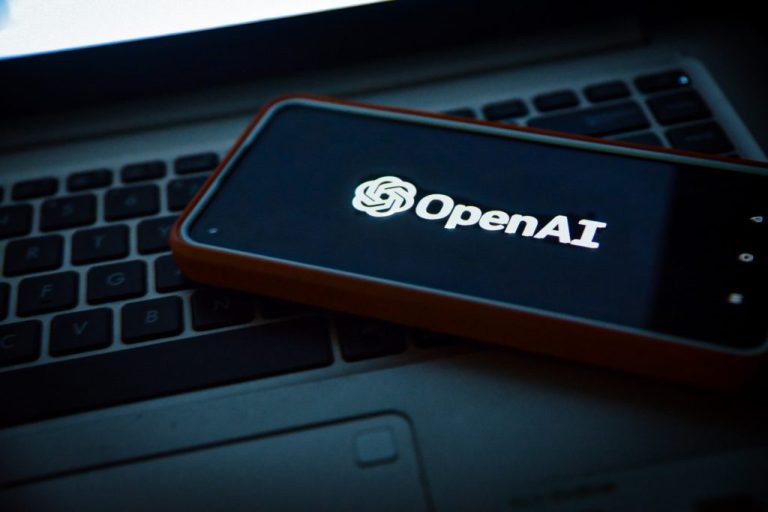Unveiling the Risks: Navigating AI in Business Intelligence
Enterprise AI in Business Intelligence: Caveat Emptor
Organizations are increasingly utilizing advanced AI algorithms to enhance their growth and success by implementing private AI models that align with their business strategies. In this context, distinguishing between public and private AI is crucial. Companies are understandably cautious about allowing public AIs access to sensitive datasets, including HR records, financial information, and operational histories.
When an AI is equipped with specific data sources for generating responses, the relevance and effectiveness of its output are significantly improved. This helps decision-makers devise sound strategies. Employing private reasoning engines allows companies to maximize AI benefits while safeguarding their intellectual property. Customizing AI with enterprise-specific data provides tailored forecasting and operational adjustments rooted in everyday operations. A Deloitte Strategy Insight paper describes private AI as a “bespoke compass,” recognizing the competitive advantage of utilizing internal data. Similarly, Accenture claims AIs are set to facilitate the most substantial economic shifts in work since the agricultural and industrial revolutions.
However, a potential drawback is that, similar to traditional business intelligence, leveraging historical data from several years may entrench decision-making within past patterns. McKinsey cautions that firms risk “mirroring their institutional past in algorithmic amber.” Additionally, the Harvard Business Review notes the technical complexities in customizing a model to ensure its relevancy to a company, a task likely best suited for those with solid skills in data science and programming.
MIT Sloan takes a measured approach, advocating for AI to be considered a co-pilot while encouraging ongoing scrutiny and verification of AI outputs, particularly in high-stakes situations. Decision-makers contemplating this path—embracing AI in a private and cautious manner—should critically evaluate the interests of advisors that promote such AI adoption.
For example, Deloitte develops custom AI solutions for clients, utilizing unique infrastructure like factory-as-a-service offerings, while Accenture boasts dedicated divisions to enhance its clients’ AI strategies, collaborating with platforms like AWS and Azure. Such vested interests might impact the objectivity of phrases like “the most significant change to work since the agricultural and industrial revolutions” or “bespoke compass.”
Nonetheless, advocates for AI highlight its superior ability to uncover trends and underlying statistics more efficiently than humans. In today’s data-rich environment, with vast repositories of both internal and external information, AI software provides a remarkable edge by streamlining data parsing. This minimizes the time-consuming and error-prone process of manual data analysis, transforming large data sets into actionable insights.
Moreover, AI models have the capacity to interpret natural language queries and make predictions based on empirical data, making them particularly valuable in a private AI context. Even personnel without statistical analysis or database management expertise can access valuable insights, previously requiring multiple teams with diverse skill sets. This significant time-saver allows organizations to concentrate on strategic initiatives, rather than the cumbersome task of data gathering and parsing.
Gartner cautions against the pitfalls of overconfidence and the risk of data obsolescence in the realm of AI. Historical data can become irrelevant for strategic planning, especially if it dates back several years. Overconfidence manifests when operators blindly trust AI outputs, failing to investigate the details of the responses. This issue can be exacerbated by poorly formulated queries, which may yield misleading results.
For any software algorithm, human phrases like “base your findings on our historical data” can be open to interpretation. In contrast, a specific directive such as “base your findings on the last twelve months of sales data, excluding outliers that deviate from the average by more than 30%, and please identify those instances for my consideration” leaves little room for ambiguity.
Organizations are increasingly exploring private AI solutions in tandem with established business intelligence (BI) platforms. For example, SAP BusinessObjects has been around for nearly 30 years, while SAS Business Intelligence predates the mainstream internet era of the 1990s. Even relatively newer solutions, like Microsoft Power BI, represent over a decade of evolution, customer feedback, and application in business analytics. Therefore, it’s prudent to view private AI as an enhancement to existing strategic tools rather than as a surefire replacement for traditional methodologies.
For users implementing private AI who can assess and adjust their model’s inputs and algorithms, maintaining human oversight is crucial, similar to the approach taken with Oracle’s Business Intelligence suite. In certain scenarios, such as dynamic online retail pricing, AI’s real-time analysis can provide a competitive advantage over legacy BI systems. However, AI has not yet evolved into a comprehensive solution for business strategy.
Until AI systems designed for business data analysis reach the same level of sophistication, durability, and reliability as established BI platforms, early adopters should balance their enthusiasm for AI with practical experience and critical evaluation. While AI represents a promising tool with considerable potential, it still remains in its early developmental phase.
The Modern ROI Imperative: AI Deployment, Security, and Governance
The application of Artificial Intelligence (AI) is no longer just about enabling technology; it is now a key driver of strategic leadership within organizations. Companies are increasingly recognizing the need to implement AI responsibly, focusing on aspects such as security and governance to ensure sustainable growth and competitive advantage.
AI’s Transition: From Enablement to Strategic Leadership
As businesses continue to adopt AI technologies, the emphasis has shifted from mere functionality to a more strategic application. Organizations are leveraging AI not only to enhance operational efficiency but also to make informed decisions that propel them ahead in their respective industries.
Tackling Hallucinations: MIT Spinout Teaches AI to Acknowledge Limitations
A spinout from MIT has developed innovative methods for AI systems to recognize when they lack sufficient knowledge or context, thus reducing the risk of misinformation, commonly referred to as “hallucinations.” This approach aims to foster greater trust and reliability in AI applications.
Legal Actions: Reddit Suing Anthropic Over AI Data Scraping
In a notable legal case, Reddit has initiated a lawsuit against Anthropic, an artificial intelligence company, for alleged unauthorized data scraping. This legal action brings to light the ongoing discussions around data privacy and the ethical use of information in developing AI technologies.
Popular Insights and Trends
AI is making significant strides across various sectors, including:
- Cloud-Native Container Security: Machine learning plays a vital role in enhancing security measures.
- Innovative Business Applications: New implementations of machine learning are transforming traditional business processes.
- Fraudulent Music Streaming: Investigations reveal the use of AI and bots to create fake streaming boosts.
- Outsourced Development Partnerships: Collaborating with external developers is showing substantial benefits for technology projects.
Artificial Intelligence, Companies, Development, Energy, Ethics & Society, Healthcare, Industries, Telecoms
June 3, 2025
Tackling Hallucinations: MIT Spinout Teaches AI to Admit When It’s Clueless
Applications, Artificial Intelligence, Companies, Healthcare, Industries
June 2, 2025
Diabetes Management: IBM and Roche Use AI to Forecast Blood Sugar Levels
Applications, Artificial Intelligence, Chatbots, Companies, DeepSeek, Ethics & Society, Research, Virtual Assistants
May 30, 2025
DeepSeek’s Latest AI Model a ‘Big Step Backwards’ for Free Speech
Subscribe
Get all our premium content and the latest tech news delivered straight to your inbox.
Explore:
- About Us
- Contact Us
- Newsletter
- Privacy Policy
- Cookie Policy
Categories
- Applications
- Companies
- Deep & Reinforcement Learning
- Enterprise
- Ethics & Society
- Industries
- Legislation & Government
- Machine Learning
- Privacy
- Research
- Robotics
- Security
- Surveillance
Other Publications
Explore additional resources such as Developer, IoT News, Edge Computing News, MarketingTech, CloudTech, The Block, Telecoms, Sustainability News, TechHQ, TechWire Asia.
AI News is part of TechForge.
Services Overview
The following are various sectors where our services are applicable:
- Defense & Security
- E-Commerce
- Education
- Energy, Chemicals & Utilities
- Engineering & Research
- Environmental
- Financial & Insurance Services
- Government
- Healthcare
- IT Services
- Manufacturing
- Media & Entertainment
- Not for Profit
- Real Estate & Construction
- Retail
- Software & Cloud Services
- Technology
- Telecommunications
- Transportation, Shipping & Logistics
- Travel & Hospitality
- Wholesale
- Other
Country Selection
Please select your country from the list below:
Permissions
By submitting your email, you agree to our Terms and Privacy Notice.





